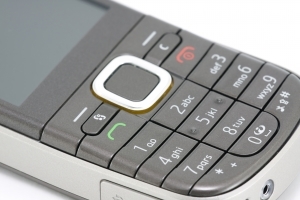February 10, 2016
 Last week, the named plaintiff in a Telephone Consumer Protection Act (“TCPA”) class action lawsuit against Bebe Stores, Inc. (“Bebe”) filed a motion for class certification. The Plaintiff has sought to certify a nationwide class consisting of all people who provided their cell phone numbers to Bebe at one of Bebe’s brick-and-mortar stores and subsequently received text messages from Bebe at any point from January 2010 through the present.
Last week, the named plaintiff in a Telephone Consumer Protection Act (“TCPA”) class action lawsuit against Bebe Stores, Inc. (“Bebe”) filed a motion for class certification. The Plaintiff has sought to certify a nationwide class consisting of all people who provided their cell phone numbers to Bebe at one of Bebe’s brick-and-mortar stores and subsequently received text messages from Bebe at any point from January 2010 through the present.
What are the allegations of the underlying TCPA lawsuit?
The Plaintiff has alleged that in connection with a transaction at a Bebe retail location, she provided her cell phone number believing that this was necessary in order to complete her transaction, and that the phone number would be used for no other purpose. She alleges that soon thereafter, she received an unsolicited text message from Bebe promoting its goods and services. Plaintiff claims that the text message was sent through use of an autodialer and without her consent, in violation of the TCPA. Bebe had previously moved to dismiss the lawsuit arguing that Plaintiff had consented to the receipt of the text message at issue by providing her cell phone number, but the motion was denied by the Court.
Protect Yourself from a Text Message-Related TCPA Lawsuit
This case is emblematic of the larger trend in the TCPA litigation space in which class action lawsuits are being brought against advertisers and their affiliates in connection with text message marketing. The most effective way to avoid confrontation with potential class plaintiffs or federal regulators is to remain off of their radar in the first place. Accordingly, it is critical to work closely with experienced counsel, knowledgeable in the intricacies of the TCPA and mobile marketing law. The ability to demonstrate that you have worked closely with counsel to develop and implement practices designed to prevent the sending of unsolicited text messages can go a long way towards reducing exposure and damages in the event that you ultimately find your business served with a TCPA lawsuit.
If you are interested in learning more about this topic or need to review your mobile marketing practices and procedures, please e-mail us at info@kleinmoynihan.com, or call us at (212) 246-0900.
The material contained herein is provided for information purposes only and is not legal advice, nor is it a substitute for obtaining legal advice from an attorney. Each situation is unique, and you should not act or rely on any information contained herein without seeking the advice of an experienced attorney.
Attorney Advertising
Similar blog posts:
Victoria’s Secret Exposed in TCPA Class Action Suit
FCC Creates TCPA Exemption for One-Time, On-Demand Text Messages



